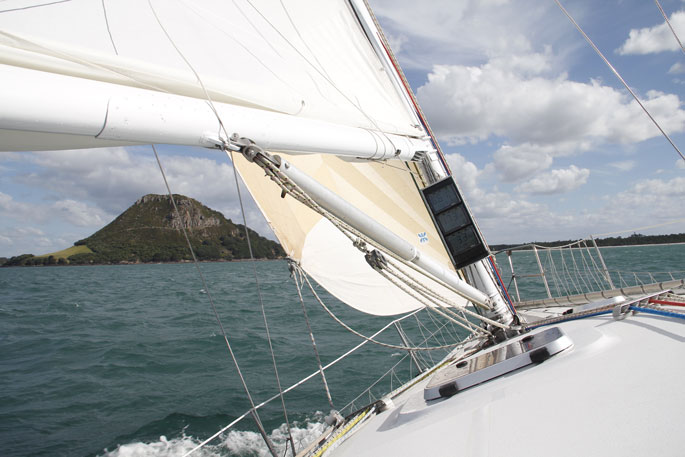Biosecurity New Zealand has successfully trialled a new method of treating invasive termites on an imported yacht.
Non-native termites and other wood-boring insects are occasionally found on recreational vessels on arrival from overseas.
Until now, they have been treated by gassing the vessel with a fumigant such as methyl bromide to kill the insects.
Biosecurity New Zealand's director of readiness and response, John Walsh, says the recent successful use of heat treatment is a significant achievement and represents a milestone in the use of non-fumigant solutions to treat pests.
"Being able to treat a vessel at berth is quick and convenient. It also supports our drive to use environmentally sustainable treatment options and reduce the use of chemicals and fumigants where possible."
Recreational vessels coming into New Zealand need a full biosecurity clearance to ensure pests don't become established here and potentially damage our environment, health, or economy.
The yacht in this trial was found to have an infestation of the West Indian drywood termite, Cryptotermes brevis, which meant treatment was required to prevent this invasive pest from escaping and establishing here.
Internationally, Cryptotermes brevis is regarded as one of the most damaging drywood termites. It feeds on dry wood and poses a significant threat to untreated timber framed homes and items made of timber.
Mr Walsh says the new treatment involves circulating air throughout the sealed vessel at a constant temperature of 55°C for a minimum of 5 hours with close monitoring.
"Subsequent testing confirmed the treatment killed all termites present. Post treatment sample analysis by Biosecurity New Zealand's Plant Health and Environment Laboratory has confirmed the effectiveness of the treatment.
"Our team is now monitoring the yacht, but we are confident this is a step in the right direction for New Zealand's biosecurity, supporting our environment and biodiversity efforts," Mr Walsh says.
"We will be exploring other uses for this method across our biosecurity system."
More information about yacht hitchhikers – Fact sheet [PDF, 849 KB]



0 comments
Leave a Comment
You must be logged in to make a comment.